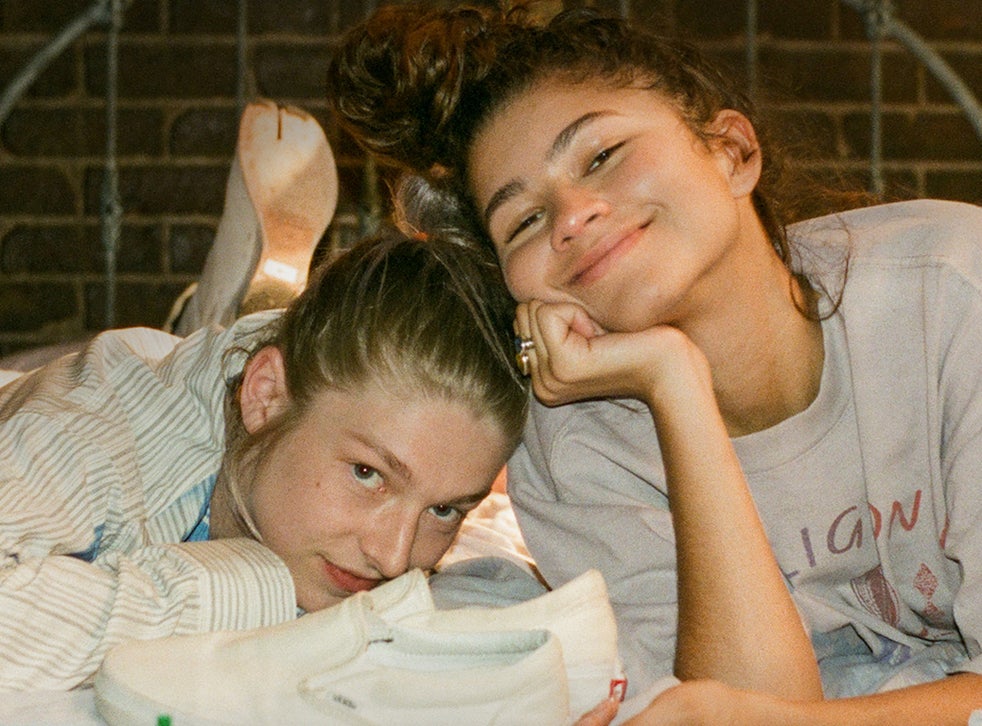Last summer, Euphoria set a new bar for provocative teenage dramas. Even before its release, the HBO series – starring Disney Channel’s Zendaya as a 17-year-old recovering-ish drug addict – was rebuked by the Parents Television Council for “grossly irresponsible programming”. The show lived up to its reputation; over a running time of eight hours, it offered an onslaught of sex, drugs, more sex and more drugs, abusive relationships, social media toxicity, adult predators, and an astonishing number of penises. The more panic attacks it induced in parents, the more the series won over teens. And simultaneous to the dozens of on-screen dicks – 30 to be exact – was a brilliant and tender portrayal of teenage relationships: platonic, romantic, sexual, filial.
When its second season became one of the many productions to go through the pandemic wringer and come out with an ominous TBC release date, fans were dismayed – and Euphoria showrunners listened, responding with two bridge episodes to tide viewers over. The first, titled “Trouble Don’t Always Last”, was released on Sunday (6 December) on Sky Atlantic and HBO.
The one-hour instalment opens on Jules (Hunter Schafer) sleeping. The sun slowly rises, and Rue (Zendaya) enters the frame planting kisses on her body. What ensues is a picture of domestic harmony. Fans – whose hearts all broke in unison when Jules, departing to New York, left Rue alone at a train station at the end of season one – will exhale in confused relief.
But obviously, it’s a trick. In a trippy bit of camerawork that has since become a stamp of the show’s creator Sam Levinson, Rue exits a sun-flooded bathroom and is plunged into a darkly lit diner where she – high after snorting some crushed-up pills – meets with her sponsor, Ali (Colman Domingo). Of course, it wasn’t a happy ending; this isn’t that type of show.
Those hoping for a typical episode (fast-paced and scantily clad) will be disappointed. Instead, the instalment focuses entirely on Rue and Ali, and the conversation they share eating pancakes in an empty diner on Christmas Eve. Once you get over the expectation that the scene will suddenly cut to something obscene, you can begin to enjoy it.

Hunter Schafer and Zendaya as Jules and Rue
(Sky Atlantic)
One of the show’s few shortcomings is its desire to do so much: too many social issues to tackle; too many main characters; too many styles of genre; too little time. But filmed with just two actors and set entirely in the diner and the car park outside it, this instalment is refreshingly quiet. The diner is cosy in the same way that Edward Hopper’s Nighthawks – a painting that is later visually referenced – is cosy. It starts to feel like a self-contained cocoon: warm overhead lighting, cracked leather booths, half-eaten pancakes on the table. If season one was a tsunami, this episode is a lake.
Still waters run deep, however, and the episode’s insularity also serves to redress another of season one’s faults. Finally, Rue’s addiction – a plot that felt largely sidelined in the first series – is afforded the space to breathe. The episode consists of philosophical musings about the nature of addiction, what it means to be a good person, how the world is “just really f***ing ugly”. She and Ali speak about everything, all the way to faith and God. What saves the episode from feeling like a waste-of-time dream sequence is that the dialogue, although lofty, stays pinned to the story through occasional references to events in season one, and an intrusion from the outside world in the form of a text message from Jules.
Domingo gives an all-star performance as a tough-love sponsor, but it is Zendaya who remains the show’s linchpin. She appears as she does in series one: a cynical waif with legs scrunched up, knees under her chin, and a hoodie pulled over her head. The 24-year-old gives a magnetic performance; she makes even the most cliched lines, such as “I just don’t plan on being here that long”, somehow stick. When Ali asks Rue how she wants to be remembered by her mum and sister, the next minute of acting is a reminder of why this year Zendaya became the youngest person to win an Emmy for best lead in a drama series.
The episode closes on an extended shot of Ali and Rue driving; Bocelli’s “Ave Maria” thunders in the background. It is undoubtedly a diversion from the usual relentless sex and drugs of Euphoria, but this episode hints at a more thoughtful second series to come.









